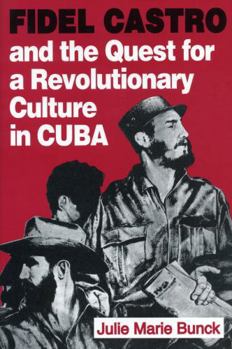Fidel Castro and the Quest for a Revolutionary Culture in Cuba
Select Format
Select Condition 
Book Overview
Beginning with an overview of the Castro regime's program to transform Cuban culture as guided by the tenets of Marxist-Leninist ideology, Julie Bunck first outlines in a broad way the four phases through which the regime's strategy evolved, from 1959 to the present, with a variety of methods tried--noncoercive, indirectly coercive, and directly coercive. The four main chapters then each focus on one of the principal targets at which the regime aimed in trying to change popular attitudes: youth, women, labor, and sports. The last chapter offers an overall assessment and explanation of the regime's few successes and many failures, suggesting lessons from Cuba's experience that help account for the collapse of communist regimes elsewhere in the world that foundered on the resistance of traditional culture to revolutionary change.
Format:Paperback
Language:English
ISBN:0271010878
ISBN13:9780271010878
Release Date:February 1994
Publisher:Penn State University Press
Length:254 Pages
Weight:0.85 lbs.
Dimensions:0.8" x 6.0" x 8.9"
Customer Reviews
0 rating





